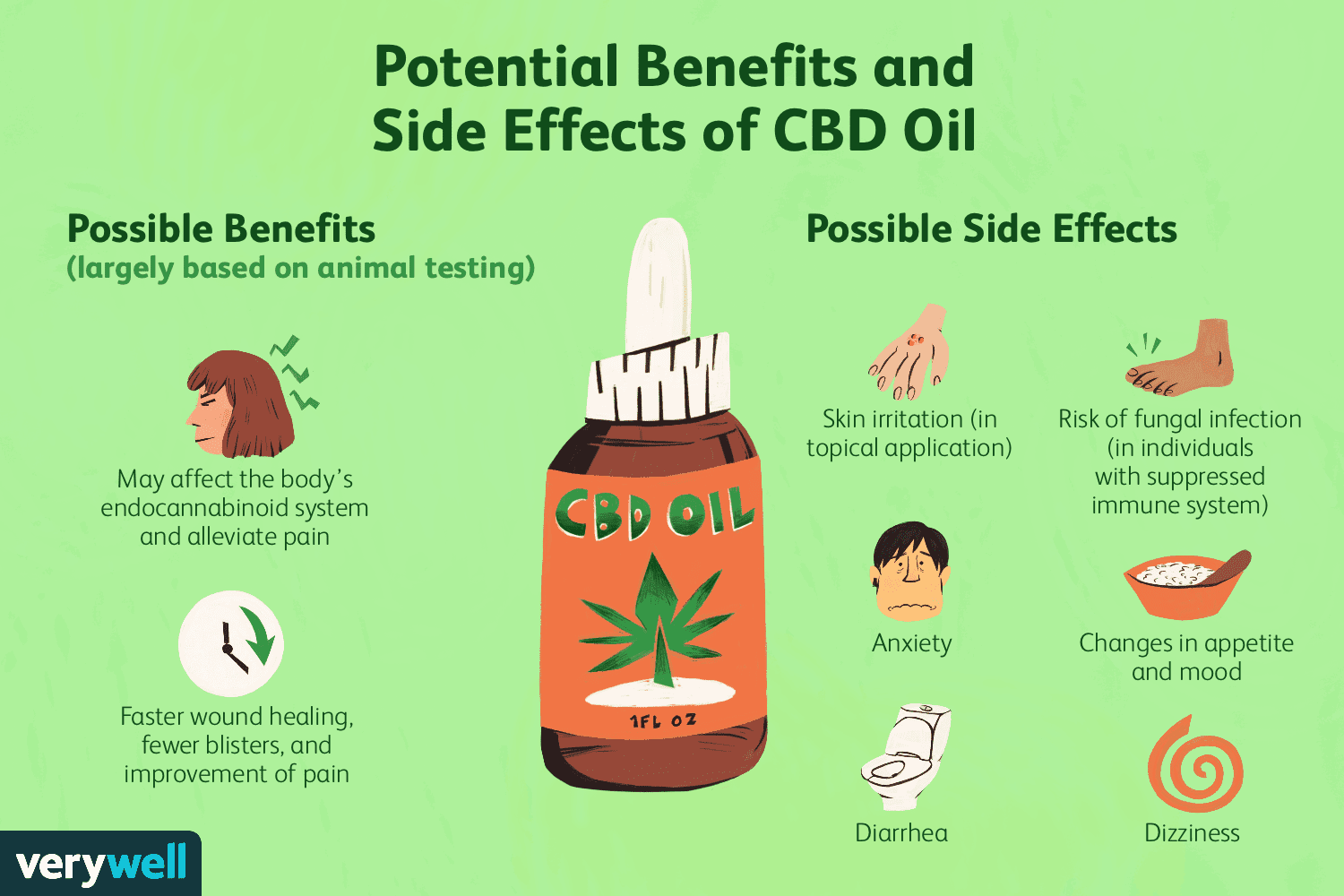
CBD
Studies have found that CBD treats certain types of seizures, helped schizophrenic patients with psychotic symptoms in two out of three RCTs, and improved daily activities and sleep in Parkinson’s patients in early studies. Another 2018 review that looked at studies from 1975 to 2018 assessed the effect of CBD on chronic pain relief. The review reviewed over 16 studies that looked at the effects of cannabis-derived drugs, including CBD products (13).
A recent systematic review of 27 RTCs studied the effects of CBD on various mental disorders (such as psychosis, mood disorders, and anxiety disorders). It is possible to draw definite conclusions about the clinical effects [44]. The authors suggest that a large-scale placebo-controlled study is needed to investigate the effect of CBD as an adjunctive treatment for mental illness [46]. A systematic review of specific anxiety conditions, including data from clinical and preclinical studies, found strong evidence from preclinical studies to support the anti-anxiety effect of CBD. Similarly, data from human studies are limited to the acute symptoms of most healthy subjects. Dose [44].
While the anti-inflammatory effects of CBD may prove beneficial for patients with arthritis, more human research is needed. More human studies are needed in this area to confirm the claims of CBD proponents about pain control. People who use CBD oil to treat arthritis can relieve pain, but more human studies are needed to confirm these results. Arthritis Pain A study published in the European Journal of Pain in 2016 used an animal model to find out if CBD could help people with arthritis manage pain.
A study published in the European Journal of Pain found that using an animal model, CBD applied to the skin could help reduce pain and inflammation due to arthritis. Another study demonstrated the mechanism by which CBD suppresses inflammatory and neuropathic pain, the two most difficult types of chronic pain to treat. Another study confirmed these results, with the researchers noting that cannabinoids like CBD could offer a new treatment option for patients with chronic pain by reducing pain and inflammation.
The researchers also found that subjects were unlikely to be tolerant to the effects of CBD, so they did not need to increase the dose over time. They pointed out that cannabinoids like CBD may provide new beneficial treatments for chronic pain patients. Although CBD is being studied as a treatment for many diseases, including Parkinson’s disease, schizophrenia, diabetes, multiple sclerosis and anxiety, research supporting the benefits of the drug is still limited. Although CBD is a promising option for pain relief, research has not yet proven its safety and effectiveness, and the Food and Drug Administration (FDA) has not approved CBD for pain management.
Human studies are limited in evidence of the benefits of CBD oil due to restrictions on cannabis use and research. While research on the benefits of CBD oil is very limited due to restrictions on cannabis use and the research that can be done, as the legalization of cannabis grows, it is expected that there will be more in-depth and longer-term studies involving humans. More evidence is needed to determine the therapeutic potential of CBD and determine safe and effective doses for pain relief.
At the same time, ongoing research in the United States shows that CBD can effectively treat chronic non-cancerous pain. A 2013 study of advanced cancer patients with cancer-related pain examined how THC-CBD extract combined with opioids can relieve pain more effectively than opioids alone (15). Other studies have shown that CBD is beneficial to alleviating various mental and medical symptoms of substance use disorders, such as anxiety, insomnia, and pain, indicating that CBD may be an effective method for the treatment of opioid addiction.
Several preclinical studies show that CBD may have beneficial effects on Parkinson’s disease, Alzheimer’s disease, and multiple sclerosis. The researchers concluded that with further research, CBD may have significant benefits when used in patients with diabetes, diabetic complications, and plaque buildup on arterial walls. In another small study, 13 type 2 diabetes patients who did not take insulin received both CBD and a placebo (instead of insulin).
In a short-term study, 42 patients taking CBD oil reported that they had less food cravings for up to a week after taking a dose of CBD. Some studies have shown that men and women who use CBD oil have less desire for abstinents. Participants who received CBD also reported lower levels of drug cravings and anxiety than the placebo group. Hurd noted that after the last CBD dose, the beneficial effects lasted for a week.
This is supported by a study in which CBD was administered in an acute and “chronic” regimen (2 weeks), which measured anxiolytic / antidepressant effects using behavioral and operational models (OBX = olfactory bulbectomy as a depression model) 18. The only observed side effects were reduction sucrose preferences, decreased food intake and body weight in non-operated animals treated with CBD (50 mg / kg). Some studies indicate that under certain circumstances, the acute anxiolytic effects of CBD in rats were canceled out after repeated administration of CBD for 14 days.2 However, this result may be dependent on the animal model of anxiety or depression used.
A recent controlled trial of 300 mg CBD found no effect on sleep performance (Linares et al., A recent study compared the subjective effects of oral CBD at a dose of 100 mg versus vaporizing and smoking CBD, and found that women reported more subjective effects of CBD than men (Spina et al.
Drug interactions have also been observed in other CBD studies in the published literature. In one of these studies, researchers gave CBD to people with heroin use disorder. Subsequently, our initial human studies showed that CBD can reduce heroin cravings and anxiety-induced anxiety in heroin sufferers. Several subsequent small clinical trials have found similar evidence of efficacy.
In addition, several studies have shown that CBD may have neuroprotective effects when working with people at high risk of mental illness. However, as far as researchers know, there have not been many serious clinical studies to characterize the effects of CBD on the brain. Although the public has easy access to the rapid influx of CBD, little is known about the impact. The beneficial effects of CBD on people suffering from other diseases are also being studied.
Before discussing relevant animal studies on the possible effects of CBD on various parameters, it is necessary to mention several important differences between routes of administration and pharmacokinetics between human and animal studies. Finally, research should be done to assess whether CBD drug interactions occur in clinical trials. Third, some aspects of the toxicological evaluation of the compound, such as genotoxicity studies and studies evaluating the effects of CBD on hormones, are still insufficient.
Research on pure CBD (also known as THC-free CBD) is limited by some of these small and inconsistent facts. Without sufficient high-quality evidence from human studies, we cannot determine an effective dose, and since CBD is currently mainly offered as an unregulated supplement, it is difficult to know exactly what you are getting.

